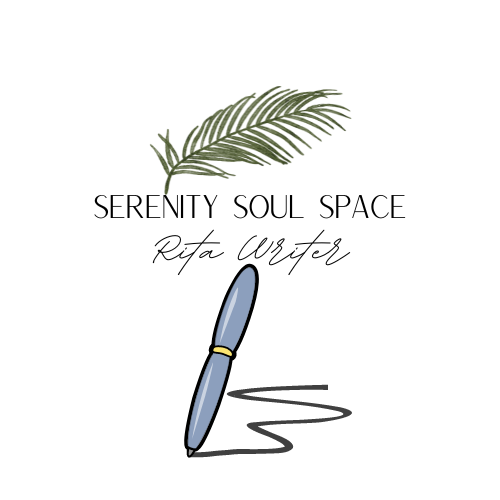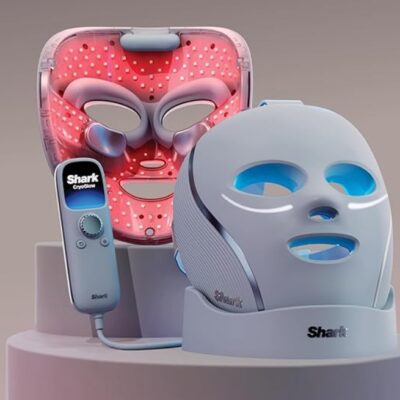Effects of Long-Term Untreated High Blood Pressure on Longevity
Some of the links in this article may be affiliate links. This means that if you click on one and make a purchase, I may earn a small commission — at no extra cost to you. I only recommend products or services I genuinely believe are helpful, especially when it comes to your health and wellness. Thanks for your support!
Effects of long-term untreated high blood pressure often go unnoticed for years—even decades—while causing progressive damage throughout your body.
If you missed, “How to Detect High Blood Pressure: 5 Silent Warning Signs,” go check that post first. Because once high blood pressure takes hold, the damage adds up fast.
This “silent killer” earned its nickname precisely because most people feel absolutely fine until significant harm has already occurred.
Yet approximately 50% of American adults have hypertension, and many don’t even know it. Moreover, of those who are aware, only about 24% have their condition under control.
Effects of Long-Term Untreated High Blood Pressure on Your Heart
Your heart bears the initial brunt of hypertension. As a result of consistently elevated pressure, your heart must work harder with each beat. Over time, this extra effort leads to:
- Left ventricular hypertrophy (enlarged heart muscle)
- Weakened heart chambers
- Increased risk of heart attack
- Development of heart failure
Furthermore, the constant pressure damages the delicate tissues of your coronary arteries, creating ideal conditions for plaque buildup. Consequently, this narrowing restricts blood flow to your heart muscle, potentially resulting in chest pain (angina) or heart attack.
Research demonstrates that for each 20-point increase in systolic blood pressure, your risk of heart disease doubles.
Brain Damage You Cannot See
Blood vessels in your brain are especially vulnerable to pressure-related injury. Additionally, the effects of uncontrolled hypertension on your brain include:
Weakened Cognitive Function
Persistent high blood pressure damages small blood vessels that supply your brain with oxygen and nutrients. Subsequently, this damage leads to:
- Memory problems
- Difficulty concentrating
- Increased risk of vascular dementia
- Accelerated cognitive decline
Stroke Risk Multiplied
Uncontrolled hypertension is the leading cause of stroke. In fact, it increases your stroke risk by 4-6 times compared to those with normal blood pressure. This happens in two ways:
- Weakened vessels can burst, causing hemorrhagic stroke
- Damaged arteries become narrow and blocked, leading to ischemic stroke
Kidney Damage: A Vicious Cycle
Your kidneys contain tiny blood vessels that filter waste from your blood. However, hypertension damages these delicate filtering systems. Meanwhile, your kidneys also help regulate blood pressure—creating a dangerous cycle when they’re damaged.
The effects include:
- Progressive kidney function decline
- Protein leakage into urine
- Eventually, kidney failure requiring dialysis
Notably, hypertension is the second leading cause of kidney failure in the United States, following only diabetes.
Vision Threatened
The eyes contain some of the smallest, most delicate blood vessels in your body. Therefore, these vessels are particularly vulnerable to pressure damage. The resulting effects can include:
- Retinopathy (damaged blood vessels in the eye)
- Choroidopathy (fluid buildup under the retina)
- Optic neuropathy (nerve damage)
- Permanent vision loss
Effects of Long-Term Hypertension Medications: A Personal Story
My mother’s experience with high blood pressure illustrates the complex reality many patients face today. She was diagnosed with high blood pressure YEARS ago and religiously took her prescribed blood pressure medications both morning and night for over 50 years, believing she was doing the right thing and staying on top of her health.
However, the long-term effects of those medications didn’t take their visible, physical toll until 2018 when her body started breaking down.
The reason I said “the visible, physical” toll was because clearly the UNSEEN damage had long since been occurring for God knows how many years. This health breakdown didn’t happen overnight.
Despite her compliance with regular checkups with her primary care physician, lab work, and consistent consumption of her BP meds, she developed serious complications.
By age 88, she went blind.
Side note: Mom’s vision could have been salvaged if her insurance company (in conjunction with a Plano eye specialist) had approved the treatment. My mother had an appointment with this eye specialist on a Friday and the insurance company and eye specialist told her to wait until Tuesday for approval. By Monday, she was completely blind.
I’m still angry about this as you might can tell.
At any rate, her vision loss and kidney damage were both directly connected to her decades use of blood pressure medications.
The final 2-3 years of her life were spent on dialysis–a challenging treatment at any age let alone for someone being over 70–that significantly reduced her quality of life during what should have been her golden years.
She was in so much discomfort and ultimately died of a stroke after a dialysis session.
Her story isn’t meant to frighten anyone away from necessary treatment. Rather, it underscores the importance of understanding that medication alone, especially over decades, may come with substantial risks that are rarely discussed during routine doctor visits.
Why Blood Pressure Medications Aren't Always the Complete Answer
Traditional medical approaches typically focus on prescription medications. While these can effectively lower numbers, they come with several drawbacks:
Side Effects Many Patients Cannot Tolerate
Common blood pressure medications frequently cause:
- Persistent cough
- Dizziness and lightheadedness
- Fatigue and weakness
- Frequent urination
- Erectile dysfunction
- Swollen ankles
For many people, these side effects significantly impact quality of life, leading to poor medication adherence.
Root Causes Remain Unaddressed
Pills lower your numbers but often fail to address underlying factors causing your hypertension:
- Chronic stress
- Poor dietary habits
- Sedentary lifestyle
- Sleep apnea
- Inflammation
Thus, without addressing these root causes, you remain dependent on medications indefinitely—often requiring increased dosages over time.
The Rebound Effect
If you suddenly stop taking blood pressure medication, you may experience a dangerous “rebound effect” where pressure spikes higher than before. Consequently, this creates a dependency that many find frustrating.
A More Comprehensive Approach Is Needed
Managing hypertension effectively requires more than just medications. Rather, it demands a holistic strategy that addresses the underlying causes.
This more balanced approach includes:
- Identifying and eliminating individual triggers
- Implementing sustainable lifestyle modifications
- Using targeted nutritional support
- Employing stress management techniques
- Improving sleep quality
- Addressing related health conditions
Most importantly, this comprehensive approach can help many people reduce their dependency on medications—or avoid them altogether.
So What’s the Smarter Approach?
The effects of long-term untreated high blood pressure are serious and potentially life-threatening. On the other hand, medication-only approaches often fall short of providing complete solutions.
The good news? Thousands have found a better way to manage their blood pressure naturally.
You don’t have to choose between doing nothing and staying on pills forever. There’s a smarter, natural way to support your heart and vascular system—without trading one problem for another.
Stay informed. Your body’s not broken—it’s just asking for help.
RELATED:
*This article is not intended to diagnose, treat, cure, or prevent any disease, nor is it a substitute for professional medical advice, diagnosis, or treatment. The information provided in this article is for educational and informational purposes only. Always seek the advice of your physician or other qualified healthcare provider with any questions you may have regarding a medical condition or treatment before undertaking a new healthcare regimen. Never disregard professional medical advice or delay in seeking it because of something you have read in this article. The purpose of this article is to share comparative information about different approaches to blood pressure management that may be of interest to readers seeking to understand their options. Individual results may vary, and what works for one person may not work for another. Any action you take based on the information presented is strictly at your own discretion and risk.











2 Comments
[…] you read our last article, “Effects of Long-Term Untreated High Blood Pressure on Longevity,” you know the long-term risks go far beyond just a high reading.That’s why finding a […]
[…] If this sounds familiar, here’s how high blood pressure affects your daily health and what you can do about it. […]